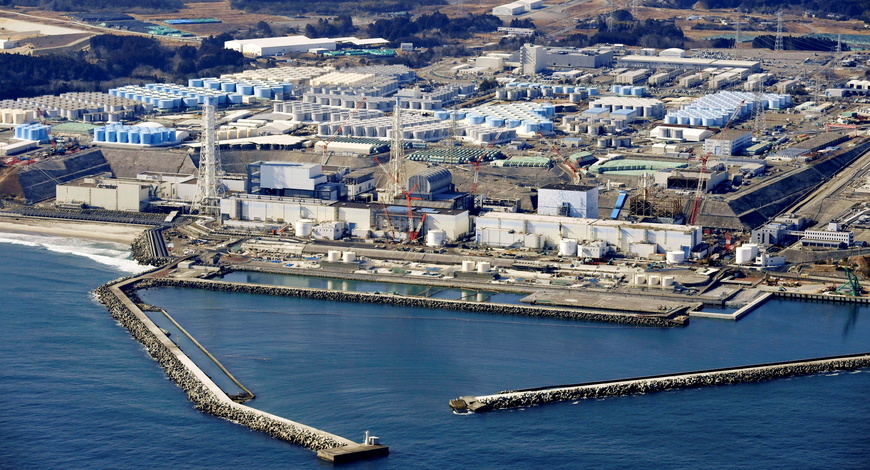UN nuclear watchdog approves plans for release waste water from Fukushima disaster
Wed 05 Jul 2023, 11:13:17

A UN nuclear watchdog has approved plans by Japan to release waste water from the tsunami-wrecked Fukushima nuclear plant into the sea. The International Atomic Energy Agency (IAEA) said, the release complies with international standards and will have a negligible impact on the environment. The Fukushima facility is running out of storage space for the water, which was used to cool nuclear reactors.
Japan's plan has been opposed by China and South Korea. IAEA Chief Rafael Grossi released the findings of a two-year safety review today, describing it as impartial and scientific. He also vowed to continue engaging with Japan after the water is discharged.
In 2011, a tsunami triggered by a magnitude 9.0 earthquake flooded three reactors of the Fukushima Daiichi Nuclear
Power Plant. It is regarded as the world's worst nuclear disaster since Chornobyl. Over one lakh fifty thousand people were evacuated from an exclusion zone around the plant, which remains in place. Decommissioning of the plant has also started, but the process could take decades.
Power Plant. It is regarded as the world's worst nuclear disaster since Chornobyl. Over one lakh fifty thousand people were evacuated from an exclusion zone around the plant, which remains in place. Decommissioning of the plant has also started, but the process could take decades.
Japan has not announced a schedule for the release and the plan still needs approval from a regulator. The Fukushima nuclear plant produces 100 cubic metres of waste water daily. Tanks on site can hold 1.3 million cubic meters. Most radioactive elements have been filtered from the water. Tokyo has said the water that will be released into the Pacific Ocean, which has been mixed with seawater, has tritium and carbon 14 levels that meet safety standards.
No Comments For This Post, Be first to write a Comment.
Most viewed from International
Most viewed from World
AIMIM News
Latest Urdu News
Most Viewed
May 26, 2020
Do you think Canada-India relations will improve under New PM Mark Carney?
Latest Videos View All
Like Us
Home
About Us
Advertise With Us
All Polls
Epaper Archives
Privacy Policy
Contact Us
Download Etemaad App
© 2025 Etemaad Daily News, All Rights Reserved.



.jpg)






.jpg)
.jpg)








.jpg)
.jpg)
.jpg)
.jpg)
.jpg)

















